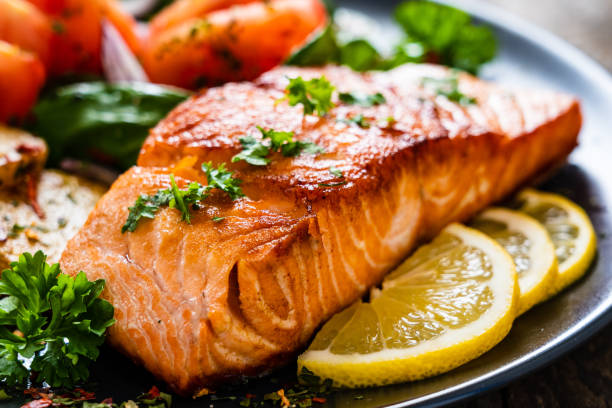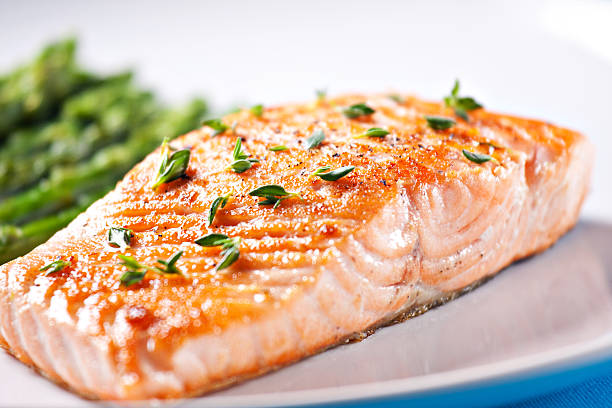Grilled salmon is a delicious and nutritious option for those looking to add more seafood to their diet. Not only is salmon packed with essential nutrients such as omega-3 fatty acids, but it is also a lean protein source that can help with weight management. One of the most important things to consider when it comes to adding any new food to your diet is how many calories it contains. In this article, we will explore the calorie content of grilled salmon and how it can fit into a healthy diet.
First, let’s take a look at the basic nutritional information for grilled salmon. According to the United States Department of Agriculture (USDA), a 3-ounce serving of grilled salmon contains approximately 200 calories. This serving size also contains 23 grams of protein and 11 grams of total fat, with 2 grams of saturated fat. While the calorie content may seem high, it is important to remember that the fat in salmon is mostly unsaturated, which is considered to be a “good” type of fat that can help lower cholesterol levels and reduce the risk of heart disease.
For example, if the salmon is cooked in butter or oil, the calorie content will be higher than if it is cooked using a dry heat method such as grilling. Additionally, certain types of salmon, such as sockeye and coho, tend to be leaner and have fewer calories than other types, such as king and chinook.
In addition to its calorie content, grilled salmon is also an excellent source of protein, healthy fats, and a variety of vitamins and minerals. For example, a 3-ounce serving of grilled salmon provides approximately 20 grams of protein and 7 grams of healthy omega-3 fatty acids. It also contains a good amount of vitamin B12, vitamin D, and selenium.
While grilled salmon can be a healthy addition to any diet, it is important to be mindful of portion sizes and to balance it with a variety of other nutritious foods. For example, a grilled salmon sandwich with a whole wheat bun, lettuce, and tomato would be a healthy option for lunch or dinner. On the other hand, if you are trying to lose weight, you may want to limit your portion size to 3 ounces or less and pair it with a side of vegetables or a salad.
Another way to incorporate grilled salmon into a healthy diet is to use it as a topping for salads or as a protein source in stir-fries, soups, and stews. These dishes can be made with a variety of nutrient-dense ingredients, such as leafy greens, bell peppers, and onions, to help keep the calorie content low.
When it comes to weight management, it is important to consider not only the calorie content of a food but also its nutrient density. Nutrient density refers to the amount of essential nutrients a food contains in relation to its calorie content. Salmon is considered to be a highly nutrient-dense food, as it is rich in vitamins and minerals such as vitamin D, vitamin B12, and selenium, as well as omega-3 fatty acids. These nutrients are essential for maintaining overall health and can help to keep you feeling full and satisfied, which can be beneficial for weight management.
Another important consideration when it comes to the calorie content of grilled salmon is how it is prepared. Grilled salmon is a relatively low-calorie option when compared to fried or breaded salmon, as grilling does not require the addition of extra oil or butter. However, it is important to be mindful of any marinades or sauces that are used, as these can add extra calories. For example, a marinade made with olive oil and lemon juice will add fewer calories than a marinade made with butter and honey.
In conclusion, grilled salmon is a delicious and nutritious option that can be a great addition to a healthy diet. While it does contain a moderate amount of calories, it is also packed with essential nutrients such as omega-3 fatty acids and is considered to be a nutrient-dense food. When it comes to weight management, it is important to consider not only the calorie content of a food but also its nutrient density and preparation method. By being mindful of these factors, grilled salmon can be enjoyed as part of a balanced diet that supports overall health and weight management.

 Home
Home Health
Health Diet & Nutrition
Diet & Nutrition Living Well
Living Well More
More












